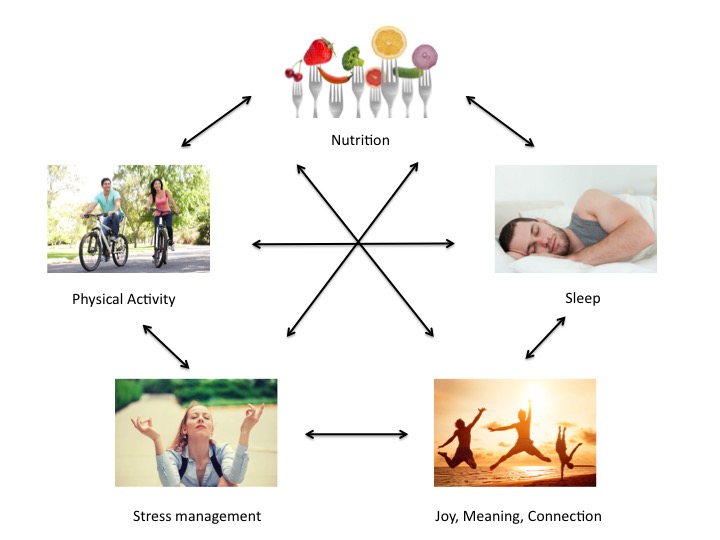|
When people hear the word "holistic" they often think of something "natural." Although the two concepts often go hand and hand, they are actually different entities. It might be easier to think of the word holistic as "whole-istic." A holistic approach in medicine emphasizes the whole individual and all aspects of their body and lives and how all these pieces work hand-in-hand to create optimal health. In my work in Preventive and Wellness Medicine, I focus on five interconnected areas that create a solid foundation for a healthy individual:
1. Nutrition 2. Physical Activity 3. Stress Management/Relaxation 4. Sleep 5. "The Good Stuff" - having plenty of joy, meaning, and connection in your activities, work, and interactions. All of these components are individually important for health, but they are also important in that they can have significant effects on the other components. The inter-relatedness is why a holistic approach is critical. We must examine all components when addressing health and wellbeing. It is almost never sufficient to just look at one part in isolation. Here are some examples of the inter-relatedness of the 5 components:
I could go on, but I think you get the picture. So, if I want to help someone achieve a healthy, resilient body or help address an existing health issue, I need to understand all the aspects of a person's life. For example, I can't know how to best help someone with his or her nutrition if I just talk to them about food. I need to understand how they're sleeping, what sort of stress they're under, their physical activity, and what is the status of their work, relationships, and extracurricular activities. All individuals would benefit from healthcare encounters that have a holistic approach and delve into multiple areas of health. A holistic approach has the best chance of achieving optimal results. Comments are closed.
|
AuthorA physician who discovered the power of nutrition and lifestyle for health and healing. Archives
January 2017
Categories
All
|
|
© Rebecca Freese MD 2024 | Terms of Service | Privacy Policy
|
Virtual Consultations
FL and VA residents |



 RSS Feed
RSS Feed